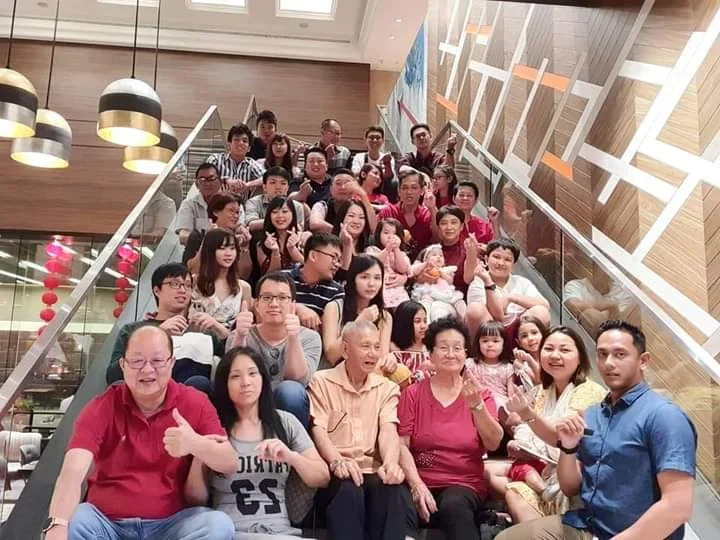Migration from small to large cities in Bulgaria is much more than a temporary trend; it's a persistent demographic problem that has a lasting impact on the country's landscape. This long-standing trend deepens with each passing day, leaving behind depopulated small towns and concentrating the population in a few large urban centers. As a result of this process, Sofia, Plovdiv, Varna, and other similar centers are becoming epicenters of economic activity and population, while the periphery is gradually declining.
Why do young people leave their hometowns?
The primary driver of this migratory flow is the search for better opportunities. Young people and young families are the most active group in this process, as they are most strongly motivated by the need for development. They leave their hometowns in search of a better quality of education, which can provide them with a better start in life. After completing their education, they rarely return, as large cities offer a much wider range of career opportunities and higher incomes. This creates a vicious circle: the lack of prospects in small towns causes young people to migrate, and their migration further worsens the situation, as it deprives small towns of their most viable and productive resource.
The Alarming Data
This demographic dynamic is not just a feeling; it is supported by alarming data. According to recent studies, internal migration to large urban centers continues to be one of the most significant factors in deepening the demographic crisis in the country. The numbers are telling; in certain periods, around 100,000 people per year migrate to larger centers. This massive flow of people to a small number of locations creates a hard-to-reverse imbalance. Large cities struggle with problems such as overcrowding, heavy traffic, and increased strain on infrastructure, while small towns and villages suffer from a lack of labor, an aging population, and the gradual disappearance of the local economy and social life.
A Problem with Long-Term Consequences
You may also like
 Industrial zones and logistics: can concrete beat the demographic decline in Bulgaria?
Industrial zones and logistics: can concrete beat the demographic decline in Bulgaria? Demographic decline as an economic shock: how Bulgaria is aging and this is already felt in pensions, healthcare and regions
Demographic decline as an economic shock: how Bulgaria is aging and this is already felt in pensions, healthcare and regions Young Families and Demographics: How to Bring Back Nine Million to Bulgaria?
Young Families and Demographics: How to Bring Back Nine Million to Bulgaria? Bulgarian diasporas as "mini Bulgaria" around the world: where are the largest communities and what do they actually miss about their homeland
Bulgarian diasporas as "mini Bulgaria" around the world: where are the largest communities and what do they actually miss about their homeland
The scale of this migration is so great that it is becoming a systemic problem that affects all aspects of social life. The depopulation of small towns is not just a demographic statistic; it leads to the gradual closure of schools, hospitals, and other social institutions, which makes life there even more unattractive. At the same time, large cities are under enormous pressure from the constantly increasing number of residents, which leads to rising property prices and a deepening of social inequalities. This trend shows that Bulgaria's demographic problem is not just a matter of a general population decline but also of its uneven distribution. With each passing year, the gap between the flourishing centers and the declining regions grows, which calls into question the future of entire regions of the country. It is not just a demographic problem, but a complex social and economic challenge that requires long-term and sustainable solutions to ensure the balanced development of all of Bulgaria.




Коментари (33)
Kirov892005
26.08.2025, 12:19Абе тва е пълна катастрофа, нема как другаче!! 🇧🇬
xD1994
26.08.2025, 12:19луднница! всички бягат към големия град!! 😏
peshaka
26.08.2025, 12:24Абе, това е по-голям fail от опит да влезеш в препълнен автобус в час пик 😂
A89
26.08.2025, 12:20факт - българското сило умира
NIKI_BG
26.08.2025, 12:21абе моля те... нормално е младите да искат повече
NOCOMMENT
26.08.2025, 12:38Запада разрушава българските общнсти! Русия би помогнала!
tony_stark
26.08.2025, 12:42Момчета, не е ли малко тъжно, че селата стават като призрачни градове? 😂🏚️
PICH_007
26.08.2025, 12:40Точнно тва е проблема! Младите бягат защото нама работа в малките градочета 💔 🤬
m. тодоров
26.08.2025, 12:44Абеправе,амарешениатаидватсамоотЕСиевропейскипроекти!💪🇪🇺
ANONIEMEN
26.08.2025, 12:41ес ни помага да решим тези демографски предизвикателства! 🇪🇺
KRISKO_BG
26.08.2025, 12:44ES sam po sebe si ne reshava problemite, nuzhni sa konkretni natsionalni politiki za zadarzhane na mladite hora.
ни_така
26.08.2025, 12:45Точно така! ЕС е единственият ни шанс за оцеляване 💪🇪🇺
89B
26.08.2025, 13:30кой ще работи после по селата? абсолютно никой!
superman1994
26.08.2025, 14:09Западащите селца са пъленн провал на всички правителства досега.. 🔥
NoComment2017
26.08.2025, 14:11Аби прав си, ама ннема как да спрем тоя демографски колапс без евро пари 💶
Top4o1976
26.08.2025, 14:09ивросъюзътниизсмуквамладитеталанти,нямамебъдеще! 👏
VANKATABG
26.08.2025, 14:11Точно така! ЕС краде бъдещето на България 💔
593
26.08.2025, 14:13факт! младите избягват от малките градове като от чума.
peshaka
26.08.2025, 14:10Точно затова трябва повече европейски програми за регионално развитие!
53874
26.08.2025, 14:11парите трябва да отиват в малките общини, не в софия!
NINJA
26.08.2025, 14:12абе тва е пълна истна! провинциата умира, докато софия напомпва бюджета си 👍
Admina
26.08.2025, 14:15точно така! провинцията умира...
Bat_Jordan
26.08.2025, 15:27Руснаците поне ще ни спасат от тоя западен геноцид! 🇷🇺
jivko1997
26.08.2025, 15:30Аз съм заминал, поздрави на провинцията! 💻✈️
N. Тодоров
26.08.2025, 15:31Европа ни изсмуква младите и ни оставq да измрем! 💀🇧🇬
PR@V_EU
26.08.2025, 15:32Нормално и - там са възможностите, там е бъдещето! 💪🇪🇺
xD
26.08.2025, 15:32Че кой иска да живее в дупка с 500 лв заплата? 🤷♂️ 🙄
Shefa
26.08.2025, 15:35Факт! Всички бягат от малкити градове.!
7D1
26.08.2025, 15:52абетеямалкиградовесазагубени,млаадежитеискатдабягат.
1B11
26.08.2025, 15:54е явнно тва е краят - никой не иска да живее по селата вече
blagoi
26.08.2025, 16:40Аби, кой ще оре нивите, като всички избягат в София? 😂
BAI_IVAN
26.08.2025, 16:42Явно градовите са станали като Fortnite - всички бягат към големия сървър 😂
BratVasko1986
26.08.2025, 16:50Абе, кой ще работи после по селата? 🤷 Всички избягаха! 💨